How can you know if your child suffers with ADHD? More importantly what are the best and most effective ways to treat it naturally? I will address these issues and more in this post.
ADHD, Attention Deficit Hyperactivity Disorder, is one of the four modern childhood epidemics many families will face in our period of history. Studies reveal that one in thirteen children have ADHD. One in three of all children diagnosed with ADHD will also have a secondary developmental condition such as depression, anxiety, learning disabilities, ODD, Tourette syndrome, and others. Thankfully each of these secondary conditions can be benefited by the treatments we will outline.
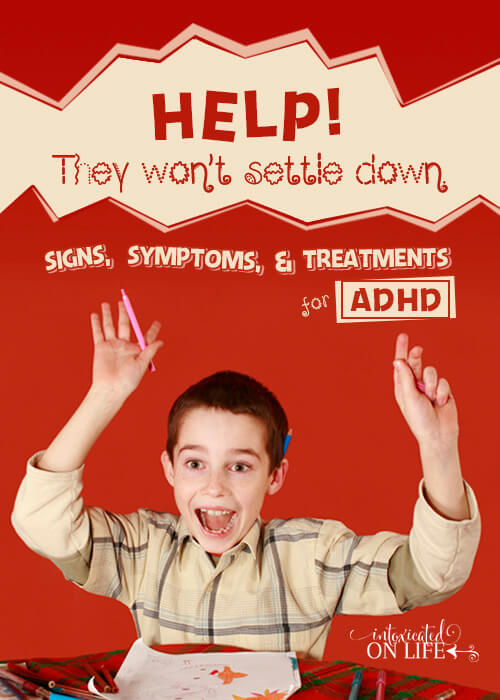
Signs and Symptom of ADHD
ADHD symptoms often appear early on in a child’s life. Many adults have ADHD as well but they often are not aware. To be diagnosed with the disorder, a child must have symptoms for 6 months or more, and to a degree that is greater than other children of the same age.
This may be a difficult diagnosis to achieve, however, seeking the help of a licensed physician and a specialist can bring that diagnosis about. The main symptoms of ADHD are inattention, hyperactivity, and impulsive behavior. We also see inattention and impulsive behavior in ADD. Let’s address each unique set of symptoms.
Inattention can look like this:
- easily distracted, missing details, and forgetful
- often switch from one activity to another
- difficulty focusing on one thing
- easily bored, unless they are doing something enjoyable
- trouble paying attention during organizing and completion of tasks, or when learning something new
- trouble completing or turning in homework assignments, often losing things needed to complete tasks or activities
- inattentive listening, daydreaming, become easily confused, and moving slowly
These children may also have difficulty processing information as quickly and accurately as others. They often struggle following instructions.
Symptoms of hyperactivity look like this:
- fidgety and squirmy in their seats
- talk nonstop
- dash around
- touching or playing with anything and everything in sight
- trouble sitting still
- the need to be constantly in motion
- difficulty doing quiet tasks or activities
Children who have symptoms of impulsivity may:
- be very impatient
- blurt out inappropriate comments
- vent emotions without restraint
- be careless of consequences
- have difficulty waiting for things they want
- struggle waiting their turns in games
- often interrupt conversations or others’ activities.
ADHD is considered biological due to genetic and epigenetics. Professionals can detect ADHD not only from observation but from brain scans.
They are now finding evidence of nutritional deficiencies and epigenetics playing a significant role in the onset of symptoms as well as the treatment of the condition. These include heavy metals and pollutants, autoimmunity, food allergies, problems related to pregnancy, and thyroid disorders.
What is Epigenetics?
Epigenetics is study of how our bodies function and respond to the world around us from changes we make rather than actually changing our genetic profile itself. How does this effect ADHD?
Professionals are finding that such things as:
- MSG, artificial colors and flavorings, and preservatives
- synthetic chemicals, cleaning chemicals, and poor indoor air quality
- hydrogenated fats, high fructose corn syrup, and highly processed foods (such as white flour, white sugar, etc.)
can aggravate the condition by the brain reacting to those things. Other triggers include links between early television exposure, under the age of 2.
Natural Options for ADHD
Common allopathic treatments routinely prescribed for ADHD include but are not limited to Ritalin, Adderall, Concerta, Cylert, Dexedrine and Strattera.
All of these are stimulant drugs. These have been prescribed for children as young as 3 years old. Each of these has been considered to be dangerous enough to need specialized labels containing warnings during usage, and each of these likely carry unknown long term risks as well.
Personally I would opt to treat more holistically and naturally.
Some of the best options start with alleviating all known triggers in the environment and changing eating habits:
- Eating a whole foods diet
- Often going gluten-free and casein-free are effective routes
- Elimination diets can uncover any existing food allergies and possibly healing leaky gut syndrome that contributes to symptoms
- Supplementing with probiotics will help repopulate gut bacteria and aid in healing the gut lining
- Digestive enzymes can also be used to speed healing and use food effectively
Additional supplementation with fish oil containing high quality EFA’s is very important for brain development. Coromega is a good brand but contains egg yolks. Nordic Naturals is another good quality brand without common allergens.
Diffusing essential oils such as lavender, lemon and thyme in the school room and home can increase:
- concentration
- improve memory
- promote mental clarity
Applied Behavior Analysis is another really effective option along with helping your child form a steady routine. Good organization will also benefit them, as well as your whole family.
Summing it Up
I know that it can be overwhelming if you see signs of ADHD in your loved ones or even yourself. I suggest the first step you take is to pray! Ask God to direct your steps and what your best options are. Then go from there.
- Look at what you are feeding your kids first.
- Slim down and simplify their life and schedule.
- Then look at supplementing with the best and most important things first.
There are other supplement options but I have found through research that these are often the most clinically tested, effective, and proven over time recommendations.
For recipes that are family and kid friendly you can visit my website where I share meals that fit the real food and gluten-free/dairy-free lifestyle. I also have many other “common allergen” free recipes. I have shared some great recipes on Intoxicated On Life like these Snickerdoodles and this Blueberry Coffee Cake. And of course they have their very own list of great recipes as well.
Further Reading
I recommend reading Dr. Kenneth Bock’s book found at most libraries and on Amazon Healing the New Childhood Epidemics. Here is an article from the National Institute of Mental Health that might pique your interest: it contains a great deal more about ADHD, even how it looks in teens and adults.

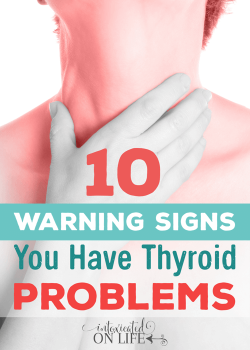
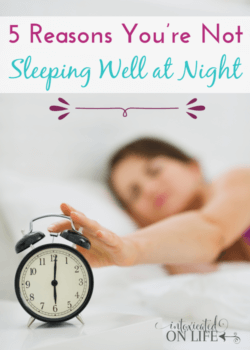
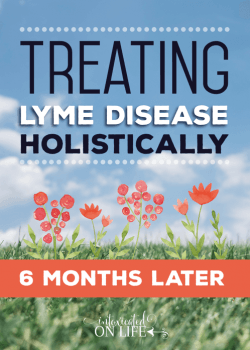
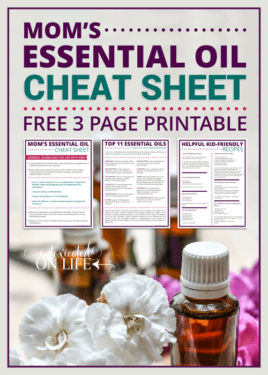

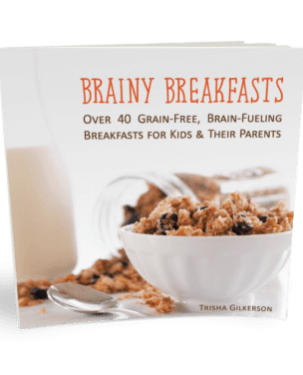



It would be good for every parent to know these signs of ADHD in their child. That way, they can help get them treated or, they can just be more patient with their child. I would hate to overlook these signs and find out that I could have been helping my child along the whole time.